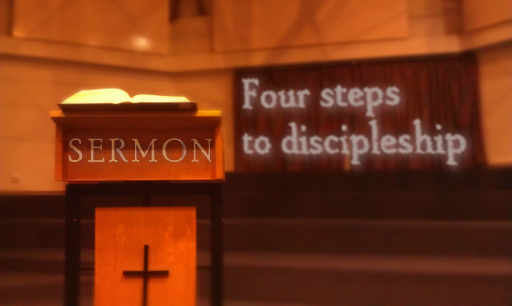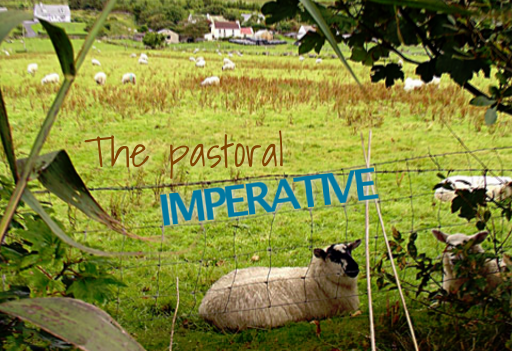Today was my second sermon ever. I mentioned last week how I found I was struggling more than with my first sermon. Before going out to preach, I still wasn’t 100% happy with it; but after having said it, I am actually finding it better than my first sermon. Anyway, here, you can listen to it, read it (although I did ad lib a bit). But as it is long, I’ll provide a summary too.

Audio clip: Adobe Flash Player (version 9 or above) is required to play this audio clip. Download the latest version here. You also need to have JavaScript enabled in your browser.
Sometimes, we are locked in the cage of our own worries: fear of failure, or of what others might think, stop us from acting. And so we try to shut out that fear, going on with our lives as though there was no way to go out of that cage. That’s where the disciples are at the start of the Gospel reading, before Christ appears to them: fear-stricken, behind locked doors. And then something happens that transforms them into the bold apostles who stand up before the Sanhedrin, saying “We must obey God rather than any human authority“.
The transformation happens in this house, in this upper room, when Jesus appears to the disciples. And it has four steps:
1. Receive the risen Christ – and lean on him in all that we do. I cannot stress enough that he is already there, in our midst, even behind locked doors – no matter how many times we go back and lock the doors again. Our part in it is to recognise his presence. And that can be done through pausing, looking around us, praying, drawing near for communion, seeing Christ in our friends. But Christ needs to be the unquenchable source of our discipleship: because if we follow something else, that something will run out.
2. Receive his peace. That follows naturally from step one – as we know that Christ who defeated death is on our side; although sometimes it doesn’t feel quite like that. Again, pause, and make sure you receive Christ’s peace before rushing out. I think that in giving us his peace, Christ unlocks the door – if we run out too fast, we might hurt ourselves quite a bit.
3. Receive and embrace his command, which is simple: “As the Father has sent me, so I send you”. We are to model Christ in our discipleship – be real imitators of him, and that means doing everything out of our love for God and for others, and in a spirit of submission – even when our will goes against what is asked of us.
4. Receive the Holy Spirit: we are not alone in this action!
I think that we each tend to focus on one step rather than all four. But they are equally important, and sequential. You can’t embrace God’s command without first receiving Christ and his peace – that would not be a race of perseverance.
If we follow all four, though, we will run that race to the end, with boldness and with peace. That’s why the liturgy goes: “Go in peace to love and serve the Lord”. We are to go beyond the church’s confines, but we are to be assured of that peace. And the response grounds this action in Christ: “in the name of Christ, amen.”
Peace be with you.




